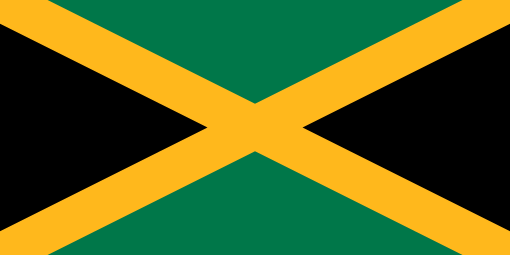 By Dr. Laura J White
As the most powerful storm since Hurricane Felix (2007) approached Jamaica on Monday, I began thinking about Jamaican agricultural exports from a new perspective. Some reading will recall what we in the agricultural trade world refer to as the “banana war” – a 6-year dispute between the US and European Union over the origins of billions of tons of bananas – and it seems as though Jamaica may have learned some lessons. This Caribbean nation is eyeing a new area of agricultural trade: cannabis and cannabis-infused products. Yes, we are talking about the antediluvian days of the global cannabis trade, but just like Bill Murray in What About Bob?, Jamaica will need to “baby steps” its way into a functioning, legal cannabis market.
In the spring of 2015, Jamaica decriminalized small amounts of marijuana, known as the Dangerous Drugs Act or, locally, as the ganja law. Partly to deal with increasingly burdensome petty criminal cases, partly to guarantee the island’s Rastafarians’ religious rights, and partly to adjust to changes in Jamaica’s tourism industry, the “Cannabis Licensing Authority” (CLA) was born. Jamaica is not, of course, the only country increasingly tolerant to cannabis possession, sale, transport, and/or cultivation (see table below).
Uruguay possess the most tolerant marijuana laws; the possession, sale, (domestic) transport, and cultivation have been fully legal and regulated since 2013. The US is in the same tolerance tier as countries like Israel, Spain, and Portugal, which are widely regarded as having liberal attitudes towards cannabis consumption. India’s marijuana laws are interestingly similar to those in the US. In this 2016 US election, recreational marijuana is on the ballot in 5 states (Arizona, California, Maine, Massachusetts, and Nevada); whereas, medical cannabis is up for the vote in 4 new states (Arkansas, Florida, Montana, and North Dakota).
Marijuana-Tolerant Countries[1][2]
By Dr. Laura J White
As the most powerful storm since Hurricane Felix (2007) approached Jamaica on Monday, I began thinking about Jamaican agricultural exports from a new perspective. Some reading will recall what we in the agricultural trade world refer to as the “banana war” – a 6-year dispute between the US and European Union over the origins of billions of tons of bananas – and it seems as though Jamaica may have learned some lessons. This Caribbean nation is eyeing a new area of agricultural trade: cannabis and cannabis-infused products. Yes, we are talking about the antediluvian days of the global cannabis trade, but just like Bill Murray in What About Bob?, Jamaica will need to “baby steps” its way into a functioning, legal cannabis market.
In the spring of 2015, Jamaica decriminalized small amounts of marijuana, known as the Dangerous Drugs Act or, locally, as the ganja law. Partly to deal with increasingly burdensome petty criminal cases, partly to guarantee the island’s Rastafarians’ religious rights, and partly to adjust to changes in Jamaica’s tourism industry, the “Cannabis Licensing Authority” (CLA) was born. Jamaica is not, of course, the only country increasingly tolerant to cannabis possession, sale, transport, and/or cultivation (see table below).
Uruguay possess the most tolerant marijuana laws; the possession, sale, (domestic) transport, and cultivation have been fully legal and regulated since 2013. The US is in the same tolerance tier as countries like Israel, Spain, and Portugal, which are widely regarded as having liberal attitudes towards cannabis consumption. India’s marijuana laws are interestingly similar to those in the US. In this 2016 US election, recreational marijuana is on the ballot in 5 states (Arizona, California, Maine, Massachusetts, and Nevada); whereas, medical cannabis is up for the vote in 4 new states (Arkansas, Florida, Montana, and North Dakota).
Marijuana-Tolerant Countries[1][2]
| Tier 1 | Tier 2 | Tier 3 | Tier 4 | Tier 5 |
| Cambodia | Australia | Argentina | Italy | Greece |
| Uruguay | Belgium | Austria | Macedonia | Moldova |
| Canada | Bolivia | Poland | ||
| Chile | Croatia | |||
| Colombia | Czech Republic | |||
| Costa Rico | Ecuador | |||
| Germany | Estonia | |||
| India | Paraguay | |||
| Israel | Peru | |||
| Jamaica | Switzerland | |||
| Malta | ||||
| Mexico | ||||
| Netherlands | ||||
| Portugal | ||||
| Puerto Rico | ||||
| Russia | ||||
| Slovenia | ||||
| Spain | ||||
| Ukraine | ||||
| United States |
- Tier 1: possession, sale, transport, and cultivation fully legalized/decriminalized
- Tier 2: legalization/decriminalization for possession + sale, transport, and/or cultivation; more legalization/decriminalization for medical purposes
- Tier 3: possession decriminalized
- Tier 4: decriminalized for medical and/or religious use
- Tier 5: possession or possession, transport, and cultivation tolerated, not legalized/decriminalized
- Anthony Hylton, Georgetown University law graduate, Jamaican Member of Parliament, and former Minister of Foreign Affairs and Foreign Trade (2006-2007), “Setting the Record Straight on the Ganja Law”, published by the Jamaica Observer on April 24, 2016.
- “Ja Can Earn US$300m From Nutraceuticals, Medical Cannabis”, published by the Jamaica Observer on March 13, 2016.